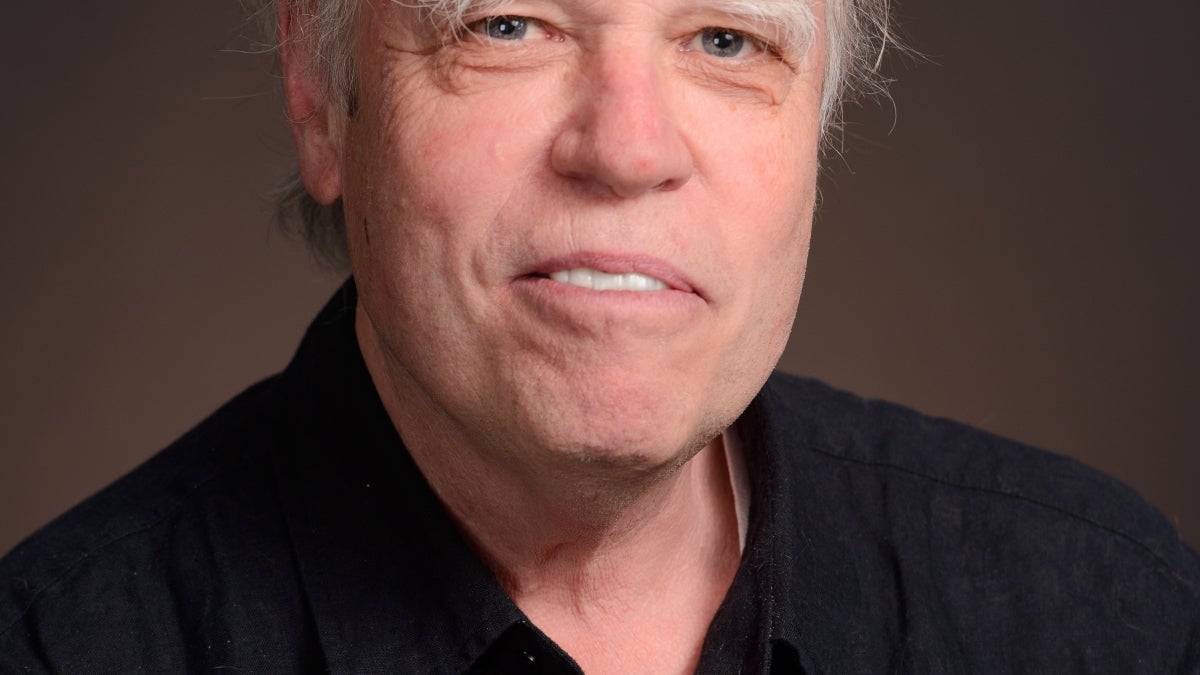Learning scientist pioneers new field of thought in literacy studies

Editor's Note: The 2013 ASU Regents' Professors will be honored at a special induction ceremony at 4:30 p.m., Feb. 6, in the Galvin Playhouse on the Tempe campus.
Arizona State University’s James Gee would like you to believe that his globally acclaimed reputation for pioneering research in three distinct learning science disciplines came about by chance. But there is no denying the singular impact of his scholarly contributions over three decades to the study of language and literacy, and more recently, to what digital games can teach us about both.
“I’ve done many things in my career, and I’ve done them in a sense, accidentally,” said Gee, Mary Lou Fulton Presidential Professor of Literacy Studies, co-founder of ASU’s Center for Games and Impact and member of the National Academy of Education. “For every book I’ve written (about 14 of them now), every one of them had an origin story that I couldn’t have predicted. I’ve been very fortunate that what I’ve pursued has worked.”
Indeed, Gee has written more than one foundational book in the learning sciences, resulting in citations by the thousands. Published in 1990, "Sociolinguistics and Literacies" is considered a founding document of New Literacy Studies, an interdisciplinary field devoted to the study of language, learning and literacy in their cognitive, social and cultural contexts.
His more recent foray into digital games and learning produced "What Video Games Have to Teach Us About Learning and Literacy" in 2003. Gee said he wrote the games book as a “virus” to entice people to read his literacy and learning theories.
“But my timing was, by accident, impeccable,” Gee insisted. “It was the first book out on this topic just at a time when people in the game industry needed an academic to give them validity. So the book just took off, unlike anything I’ve ever written.”
Gee described how his career has taken a circuitous route as he ventured into mostly uncharted areas of study. He started out as a theoretical linguist, studying language in very abstract terms. Then he focused on language in its cultural and social settings. That led him to a side interest in stylistics poetry, analyzing the meaning and function of literature. Next, he became interested in language in the real world after landing in an applied linguistics program in a college of education.
“For the first time, I became aware of educational issues,” Gee said. “I discovered that schools are the perfect place to study language in its cultural, institutional and social settings. That piqued my interest in literacy, beyond just oral language, at a time when there was great debate over how to teach reading.”
Gee said it fascinated him that reading was so caught up in political and ideological issues: “I wanted to develop a theory that melded learning and literacy so I could talk about how society and the mind relate to one other.”
He did that in 1999 with his widely influential book, "An Introduction to Discourse Analysis," which articulated his methodology of how language enacts our social and cultural perspectives and identities. So Gee was already an accomplished learning scientist when a chance encounter with video games diverted his direction once again.
“I was playing a child’s video game, Pajama Sam, with my six-year-old son, and I was intrigued by how it set up problems that you could solve collaboratively,” he said. “So I went out and bought an adult game thinking that it was going to be a toy. But I discovered that these games were very complex and that you failed constantly.
“My background expertise meant nothing, and that allowed me to see learning in a whole new frame.”
While at the University of Wisconsin-Madison, Gee founded Games, Learning & Society which hosts an annual gathering of academic researchers, video game developers and government and industry leaders. It became the model for ASU’s Center for Games and Impact. Gee launched CGI in 2011 with its director, Sasha Barab, Pinnacle West Presidential Chair of Educational Innovation in ASU’s Teachers College and Senior Scientist in its Learning Sciences Institute.
“You can do things at ASU much faster,” Gee noted. “It’s more entrepreneurial here.”
Gee comes by his entrepreneurial spirit honestly, the son of a World War II paratrooper who survived the D-Day invasion after escaping the Dust Bowl in Kansas during the Depression. Armed with a third-grade education, Gee’s father started a cab company in San Jose, Calif. But it was Gee’s British war bride mother who transformed it into a small-business success story after his father’s passing. Then she promptly sold it to buy the bridal gown store she had always wanted.
Gee recalled that his mother loved to visit the Stanford University campus where he completed his master’s and doctoral programs through state scholarships: “Mom had a very high view of education. She was always proud that I used my head to make a living.”